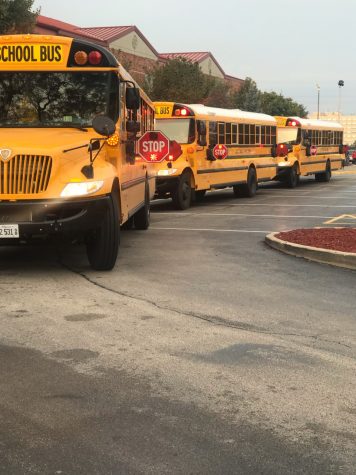Should school start earlier?
November 15, 2015
An average school day can be overwhelming in the least, and the reality of high school student life includes early mornings and late nights. All students will argue that school starts earlier than they would want, but school days from twenty years ago to today are relatively the same number of hours (although fewer nightly distractions than youth have now).
Recent surveys do prove an academic benefit to starting school around eight thirty, rather than school starting closer to seven or seven thirty in the morning, and although that may be beneficial for many students, studies have shown that schools starting earlier do, in fact, have positive effects on the education of our youth.
According to Psychology Today, studies have been conducted that point positively to students with later start times showing improved testing scores and other important aspects. However, who’s to say that students with earlier start times can’t continue to improve as much as students with later start times? Even at the time students are starting now, they can continue to excel in academics even if classes begin earlier versus starting later, which takes into consideration more time for after school activities and for the additional help that students may need: tutoring.
An article in the Baltimore Post Examiner reported on Montgomery County Public Schools in Maryland, which has 30 high schools, three of which are ranked the highest on the U.S. News and World Report in English, Algebra and college preparedness. The catch? They begin at 7:25 in the morning.
There is an advocacy for schools to start later and to push back starting times to around eight thirty, since the biological clocks of adolescents are different than those of adults and children. In starting school later, research shows that there are the positive effects such as a longer attention span and a lack of students falling asleep in class. There is also a possibility that students will abuse the extra time they are given, using it to keep themselves awake longer while staring at the tiny screen of their mobile device or browsing through social media. In that case, the brightness of the screen will already make it harder for the brain to initiate the sleep process.
Altogether, the chances of schools pushing back their starting times is slim, but it has been pushed onto the students in order to regulate their own sleeping schedule and figuring out when it is time for them to disconnect from social media and electronic devices.



